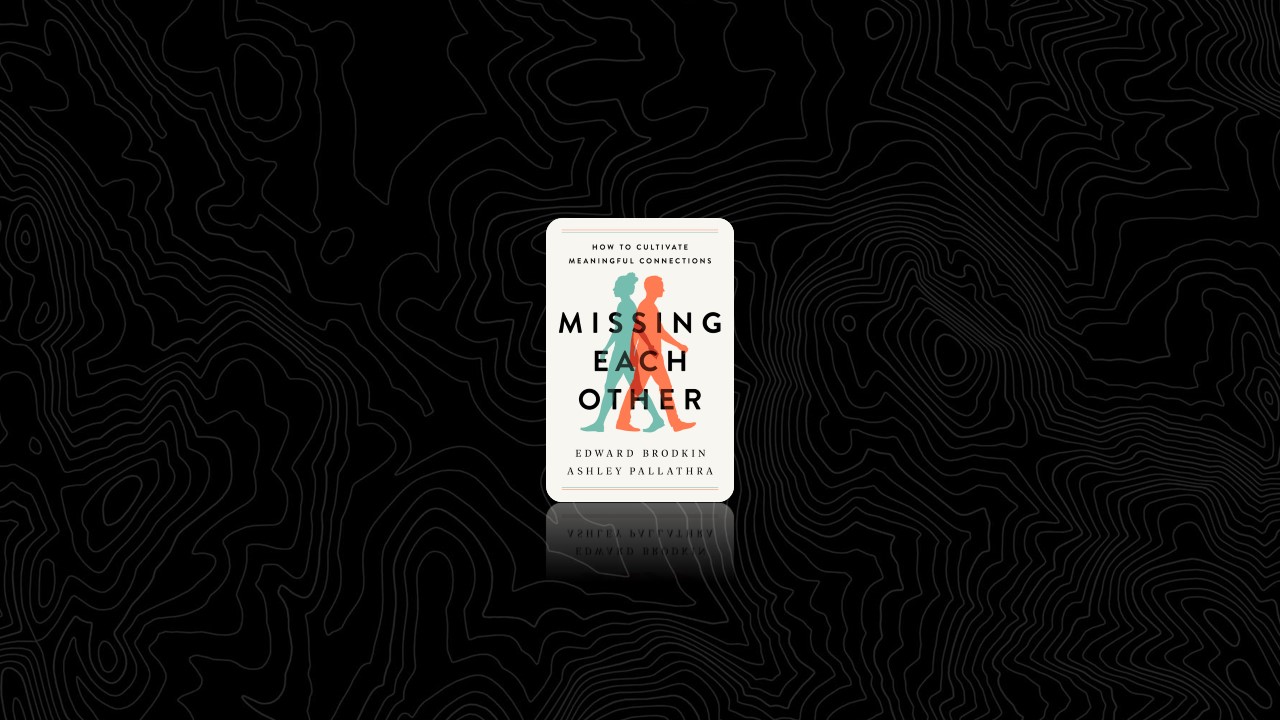What Is Attunement, and Why Is It Important?
Attunement is the ability to be aware of your own state of mind and body while also tuning in and connecting to another person. It is the fundamental social skill and the foundation of human relationships, without which we are isolated from others and cut off from our own inner life. Attunement relies not only on spoken language, but also on the communication of feeling states through unspoken signals that we exchange, such as facial expressions, tone of voice, and body language. Reciprocal communication is a dance between attention and gesture that flows most effectively when people are in tune with one another.
The nonverbal components of communication start to develop almost as soon as we are born, and they are nurtured in our interactions with our parents or caregivers. We continue to develop them over the course of a lifetime. In relationships and interactions of any depth, attunement plays an important role.
Maybe you are going through a significant bout of loneliness, isolation, or disengagement and you want to find ways of nurturing greater connection in your life. Or maybe you are someone who has existing, positive relationships with a partner, family, or friends but hopes that these bonds and connections can be strengthened. Maybe you are looking for better ways to manage conflict or become more effective in interacting with clients or coworkers. No matter who you are, developing greater attunement skills can be applicable and helpful at all those moments on your journey through life.
We think of attunement as being made of four main parts: relaxed awareness, listening, understanding, and mutual responsiveness.
Relaxed Awareness
“Relaxed awareness” means being aware of yourself and your environment, including other people, while staying calm and relaxed, and letting go of tension. This state of mind and body is the foundation of attunement, on which all the other components of attunement are built. To develop a state of relaxed awareness, you start with your physical state and work your way to your mental state, as we’ll show you, which eventually gives you an overall feeling of calm alertness. This calm alertness, in turn, lays the groundwork for being able to listen, understand, and more intimately connect with your environment and the people around you.
The importance of awareness and relaxation for attunement becomes fairly obvious if you consider extreme examples. To be attuned and connected with yourself and another person, you have to be aware—you can’t have your senses dulled or impaired, nor can you be in a panic. If you’re drifting off to sleep at the end of a long day, then clearly you can’t really be tuned in to your partner’s work woes or your child’s story about art class. If you’re the opposite of relaxed—in a complete panic or freaking out about something—you’re going to tend to lose touch with those around you, and you can even lose touch with what you’re feeling or thinking at that moment.
Listening
The ability to listen may seem mundane and easy to do—like a generic skill to which we barely give a second thought. But is genuine listening really that simple? To hear something is simple and automatic: it’s a biological function in which your ears, and the basic functions of your brain, process sound. To truly listen is a more complex, challenging, and frankly undervalued ability. Most of our everyday routines include moments of partial listening. Maybe we reply to a text while half listening to our friend recount a story, or maybe we start thinking about adding something to the grocery list as we hear about our partner’s day. While we may glean enough of the main points to piece together a response, we are so rushed, distracted, and preoccupied that it’s difficult to focus on the whole message someone else is communicating—words, emotions, and all.
The moments in which we feel heard are memorable. It’s not often we experience someone attentively listening to us for more than a few seconds, or maybe a minute. They may partially understand what you are trying to say before interrupting you, or before they get distracted by someone else or by their phone. It can seem like a miracle to enjoy someone’s attention for five minutes or more, when they let you do most of the talking, as they listen in an open, nonjudgmental, receptive way, and while they genuinely try to understand your experience and your point of view. Listening, at an elevated level, is rare and precious.
Understanding
Most of us want to feel understood, at least by those who we care about, and we feel much closer to them when they really seem to “get us.” Take the universal experience of being an adolescent or teen. During this phase in development, we long to be recognized and understood for who we really are—by our parents or caregivers, siblings, friends, and teachers. Being recognized in that way can give us a greater sense of ourselves as we build our identity. Most teenage angst is born from a feeling of being disconnected and misunderstood, which is amplified by the shame of feeling like we’re the only ones who long to be seen.
It’s unfortunate how long it takes us to realize that we are all in the same boat, yet somehow we think there’s no one else riding along with us. Sometimes, it’s long into adulthood before we finally get how much we have in common with others. It goes to show what a powerful impact feeling understood has on our own sense of self and our ability to confidently navigate life. Sometimes a member of another species can help us to find that feeling too. The American writer Gertrude Stein once said, “I am I because my little dog knows me,” suggesting that being accurately known and understood—even by her little dog—enabled her to be her authentic self. A furry friend is a good start, but even a small increase in mutual understanding in our human relationships can make our connections far deeper and stronger than we might have imagined.
Mutual Responsiveness
When you witness highly attuned people in action—dancers gracefully flowing in sync across a ballroom floor, volleyball players fluidly passing and setting up for the spike, or close friends engrossed in deep conversation—what is most apparent is their almost instantaneous communication and responsiveness to each other, their moments of synchrony, and the ease of their back-and-forth exchange. They are connected, but they maintain their individuality within that connection—if anything, they seem even more themselves in the context of that connection. Mutual responsiveness is the culmination of attunement, and when people move and connect in such elegant and intricate interaction, it’s magic.
Part of the secret behind this magic comes from what you already know about attunement—the development of relaxed awareness, listening, and understanding. Relaxed awareness is the foundation of attunement, the key state of mind. Listening lets the information and the feelings in. Understanding gives us insight into our own perspective versus the other person’s frame of mind. But mutual responsiveness is what we actually do in the interaction to keep the seemingly effortless connection going. Mutual responsiveness is how we act in relation to the other person and ourselves, and the magic happens when our responsiveness is guided by relaxed awareness, listening, and understanding. With that guidance, our actions land on target, and our responses are more effective and impactful in enhancing communication. “Responsiveness,” as we’re defining it here, does not mean having a passive, automatic, reflexive response to the other person. Rather, it means taking initiative, and that is done when we direct our actions in a more conscious way.
Where Do We Go from Here?
Human-to-human connection has a unique power and value, and it is one we should cherish and reclaim, rather than relinquish. Attunement lies at the core of our humanity and our capacity to reach across the interpersonal divide and connect with each other. The study of attunement can bring together the insights and practices from ancient fields like music and Tai Chi with those of the most current scientific research. While some elements of attunement, like mindfulness and social cognition, have been the focus of accelerating neuroscience and psychology research in recent years, attunement as a whole has not received the research attention that it deserves. We have much left to learn about the science of attunement, and research developments will be exciting to follow in the coming years.
We urge you to refocus on the art of attunement now, and to take steps in your own lives to try to build up these inherently human abilities in the near future. Our hope is that the ideas outlined in this book will generate more recognition of the key importance of attunement in all of our lives, and help to set off a renaissance of interest and research in this area. Our hope for you is that, in the meantime, you start now to put the power of attunement to good use in building a greater understanding of yourself and a deeper connection to the people in your life.


